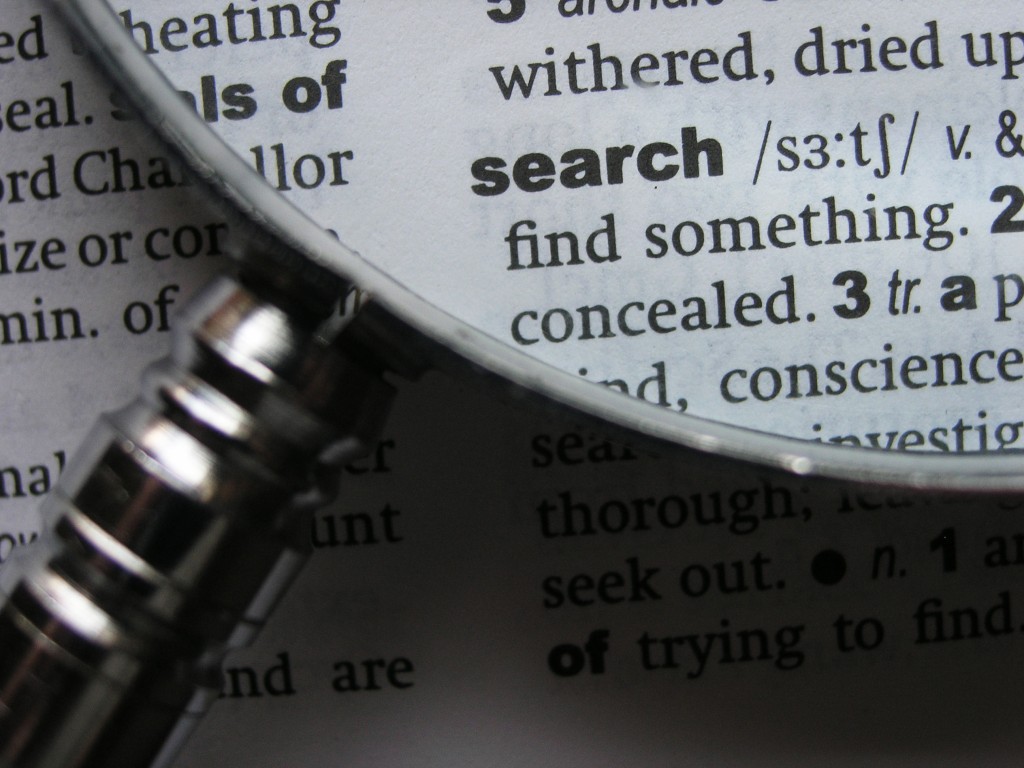Usability: How to write for the Web
15/05/2011
You have probably read it so often that it may even sound banal, an illogical expression but…Content is the king. So how come nobody never talks about it?
People talk on how to present it, what to put around it, but they never talk about how to create a good content. Or better, thinking about it, most all of the times in which I have read this statement it was always to justify a lack of aesthetics.
The content is king, so let’s give it the space that it deserves.
The web, gives he opportunity to have a wide and very heterogenic audience, that visits your site right for the content and for this reason it’s important to write and create contents with cognition.
If we don’t pay attention, some people could be excluded or expelled ( users or potential clients) because they weren’t able to read through the errors or understand through the big words, the typical expressions of marketing and many other technicisms.
Unfortunately too often the consideration of the content doesn’t go beyond the proclamation of its accession to the throne.
Many sites find themselves in the situation where the writing of the contents is assigned to someone who isn’t qualified, often because of a low investment (for necessity or for a scarce evaluation of the net).
Obviously this person can make some mistakes: whether it’s you or one of your clients, maybe itwould be better to know which errors are better to avoid, in order to improve yourself as the creator of the contents or to offer a valid support to your clients during the realization of texts for the web.
Writing for the users
We must first know how to give the right text formatting, in order that reading is effectively possible.
In reality, besides this, most all of the errors can be summarized in one single problem: we don’t write for the users (or potential clients), but for someone else (or something else), essentially for the wrong persons/things. For who/what do you write?
For your secret diary

Unlike printed publications, books or magazines, on the web too often there are no editors nor publishers that control what you wrote and correct it.
Whoever can publish an article, even if full of errors of grammar, spelling or of punctuation, nobody will correct it.
As I have already said many times, I’m first of all a user and have to admit that finding texts with many errors irritate me: I consider it a lack of respect.
Knowing and respecting the rules for a writing at least correct, should be the interest for anyone who wants to publish a text.
This if we’re talking about a personal project, but instead if we’re considering a company or a brand, even one single error can mine the user’s confidence.
In the same discussion can be included dialectical expressions and fast writing (typical of memos and SMS), surely to be avoided: are all errors that highlight a lack of professionalism; moreover you can really risk that the user doesn’t understand what you wrote or can’t read it at a quick glance.
To resolve much of the problem it would be the case to rely on spell checkers with a bit more humility: if you have never shined in English, you should accept the fact that automatic correctors probably know more than you.
For grammar the problem is a bit more complicated, but implement the rule of common sense:short and simple phrases and you’ll see that it will be more difficult to make mistakes.
For your office/your company

Unless it’s a site that clearly offers services or information strictly to a niche of a small target, you should talk to everyone.
To do it, you should avoid any sort of technicisms and marketing language: not everybody understands the meaning of B2B or B2C (business to business, business to consumer) or what the term “grisaille” means, therefore use certain terms only if you’re planning to create a technical dictionary or marketing one.
Why can’t you use them and explain them afterwards? Because the reading on the web is fast, it’s all about giving a look at the text searching for what we need and not a research of unknown words: bumping into them the user is more inclined to leave the site.
You know those clauses that require the accepting full of incomprehensible legal terms’? Know someone who reads them? To many users these clauses seem out of place (even if reality they aren’t) and become suspicious to continue.
For your English teacher

For the same reason you should avoid a too high language: writing for all means according to J. Nielsen (Web Usability 2.0), writing at a middle school level , in order that a person with a middle school education is able to understand.
Therefore one needs to use a simple vocabulary and short phrases with at maximum one subordinate.
In case of government sites or that offer services to a wide range of persons, Nielsen suggests to write even at an elementary level.
For who wants/can waste time

We already talked about it times ago: the user doesn’t dedicate a lot of time in assessing if there’s the information he’s looking for in the page or in the site
Not giving immediately the answers or not highlightening them is the same as not giving them at all, because probably the user won’t read the entire article if he thinks that it may not concern him and will pass over or worse go away.
The solution in this case is to begin from the end: giving the answers in a synthetic way at the beginning of the content (article or whatever kind of text) and deepen it afterwards.
The content should be well divided in different paragraphs, with meaningful titles in order that the argument catches our eye and with the most important concepts in evidence, in order that the user can with a quick glance understand what we’re talking about.
Nielsen advices us against texts too long: for the web the text should be maximum 3000 characters; a long text is discouraging.
The trick of subdividing the content in many pages, according to Nielsen’s studies is not a solution for very long texts: at this point it’s better to create more pages or articles clearly separated, dividing the argument in a logical manner
For the search engines

As I said, basically small-medium sized Italian companies don’t rely on copywriters for the texts because they’re too expensive , but they’re willing to spend in SEO.
Some SEO experts, real or presumed, write non sense phrases, aiming to have a high key word density, with the result that the user that visits the site abandons it because it lacks of real information.
Like many other problems, this one is easily resolvable with a bit a common sense: a user (always remember potential client) doesn’t like to read 10 times in a row the combination of words “computer solutions”, in phrases where “computer solutions” doesn’t have nothing to do with; the user will prefer to know what are these “computer solutions” and understand if it’s what he’s looking for.
Writing for the web: Conclusions
Knowing how to write for the web is something that is independent from knowing how to write for the press and effectively from the web design…although it’s an indispensable component of usability and it’s impossible to waive this knowledge if you want to create the text for your site or if you want to be able to give good advices to your clients.
For your contents, do you do everything by yourself, someone helps you or at least let other people read your texts before publishing them? Have you ever had a client that explicitly asked you to edit the texts for his site following his guidelines? Or have you ever found yourself in the position of having to correct the text because too long, without naming the paragraphs or some of the other errors mentioned above, therefore not suitable for the web? To you the word.